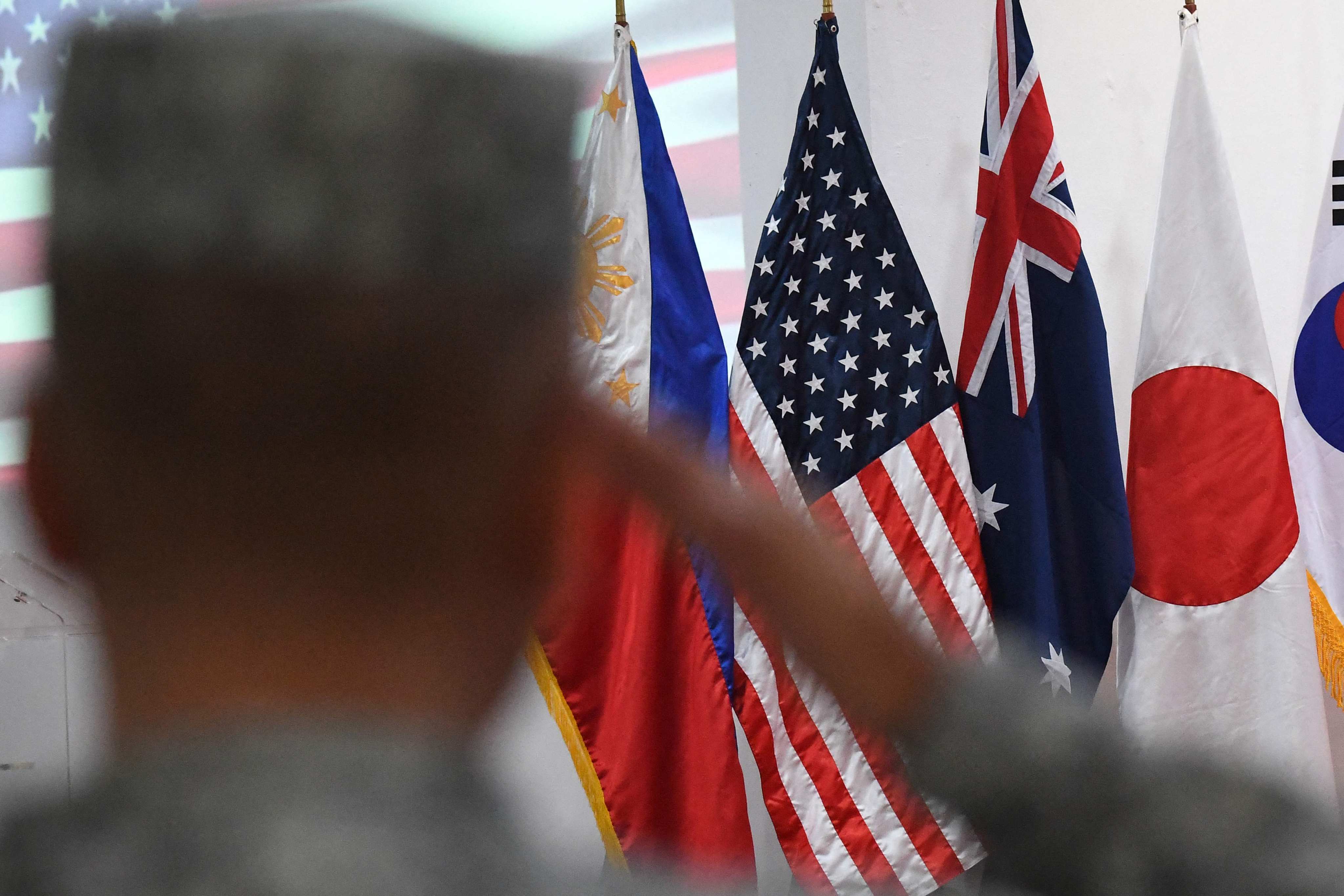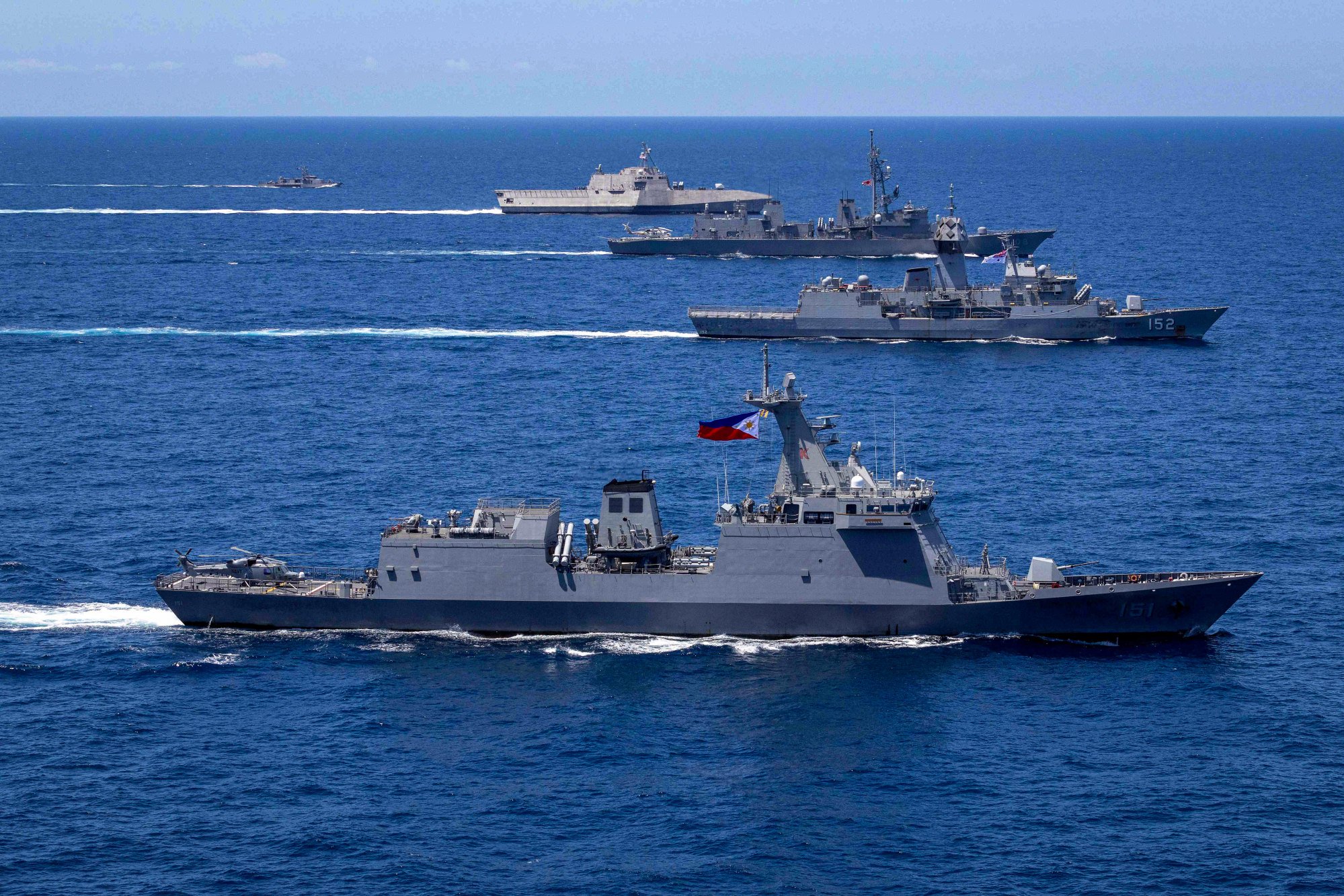Can Squad fortify Asia-Pacific security amid China’s rise, Trump’s flip-flops?
The coalition of Australia, US, Philippines, and Japan was recognised by the Pentagon chief as the most ‘strategically positioned to manifest deterrence’

The spotlight is back on the so-called Squad minilateral grouping of nations aimed at countering China’s influence in the Asia-Pacific, after US Defence Secretary Pete Hegseth hailed the bloc as the most “strategically positioned to manifest deterrence”.
Observers, however, are mixed on such a stance, pointing to Washington’s transactional approach and seemingly erratic policy shifts under President Donald Trump, warning there may be “little appetite” in focusing on the group.
At last month’s major security conference, the Shangri-La Dialogue in Singapore, the defence chiefs of countries comprising the Squad – Australia, Japan, the Philippines and the United States – met to discuss countering China’s military assertiveness.
In his summit opening remarks, Hegseth underscored the Squad’s potential to “bring about peace” amid “an unprecedented military build-up by China.” In a joint statement following the forum, the defence chiefs expressed concerns about Beijing’s actions in the East and South China Seas.
Before forming last year, security chiefs from the future Squad members met for the first time in June 2023 on the sidelines of the Shangri-La Dialogue, amid ongoing naval skirmishes between China and the Philippines.
Their defence forces have also conducted joint maritime activities in the Philippines’ exclusive economic zone in the South China Sea.

Still informal
Under the Trump administration, which focuses on defence and deterrence in the Indo-Pacific region, the Squad may be “emerging as a priority” for Washington, according to Lucas Myers, research affiliate at the Sigur Centre for Asian Studies at the George Washington University’s Elliott School of International Affairs.
“[As] the Squad is openly security-oriented and clearly intended to counter China in the first island chain, it is likely that [Washington] will elevate the Squad as its preferred minilateral [relationship] in the Indo-Pacific,” Myers said.
The first island-chain refers to the chain of islands including Japan, Taiwan, portions of the Philippines, and Indonesia.
In his address at the Shangri-La Dialogue, Hegseth urged Asian countries to increase their military spending to bolster deterrence against China, while reaffirming commitments to boost Washington’s presence in the region.
“To be clear, this does not necessarily mean de-emphasising the Quad, rather that the Squad will receive additional attention,” Myers noted, referring to the partnership comprising Australia, India, Japan, and the US.
Although Washington still values the Quad, Myers said that its focus has shifted from security to providing public goods like vaccines, cybersecurity, and emerging technologies.
Rushali Saha, a security risk analyst with Horizon Intelligence, a Belgium-based threat intelligence firm, said the US had “little appetite” to revive the Squad given Trump’s “transactional approach, public disdain for multilateralism and erratic policy shifts”.
Hegseth’s comments were intended to offer reassurance of Washington’s commitment to regional security, she said, noting that the Squad would remain as one of several regional partnerships America had forged to counter China.
This year’s Squad meeting took place on the sidelines of the Shangri-La Dialogue, unlike the previous meeting last May, which former US defence secretary Lloyd Austin hosted in Hawaii, the location of the US Indo-Pacific Command headquarters.
“This indicates that the grouping still remains informal, showing no indication towards institutionalisation,” Saha said, adding that the Squad was largely driven by the US and so far Southeast Asia had not emerged as a focal point of Trump’s foreign policy.
Rommel Jude Ong, professor at the Ateneo School of Government, said that Manila needed to collaborate with the US and other strategic partners to counter Beijing’s maritime ambitions and “coercive activities” in the South China Sea.
“For the US, it needs the help of the region’s middle powers to compensate for the shortfall in US naval capabilities available in the Indo-Pacific,” Ong said, who is also a retired rear admiral of the Philippine Navy.
Pooja Bhatt, associate professor at the Jindal School of International Affairs, said the US needed allies that acted as a “military force multiplier” in the region.
“As China’s military aggression in the region would increase, it would provide enough reasons for the Squad to collectively work and act together,” she added.
In March, the Philippines’ Armed Forces chief, General Romeo Brawner, announced during the Raisina Dialogue security forum in New Delhi of the Squad’s intent to include India and South Korea.
Describing Brawner’s call for expansion “premature”, Ong said Seoul and New Delhi were unlikely to engage in any serious military commitments in the South China Sea due to strategic concerns in their respective regions.
“For the Philippines though, both countries are critical partners in defence logistics, being principal sources of weapons systems critical to its military modernisation programme,” Ong said.
Given the different comfort levels and comparative advantages of India and the Philippines, the Quad and Squad play different but complementary rolesLucas Myers, analyst
Myers said India had always been careful not to completely align with the US and its treaty allies, especially on security affairs, due to New Delhi’s long-standing non-aligned foreign policy and “unwillingness to unnecessarily antagonise China”.
South Korea had always been less willing to counter China than Japan or other US regional allies, even under its more conservative governments, Myers said, instead opting to forge a middle path between the US and China.
“Given the different comfort levels and comparative advantages of India and the Philippines, the Quad and Squad play different but complementary roles,” Myers said.
Saha said India would be selective about where it challenges Beijing openly, likely focusing on the Indian Ocean rather than the South China Sea, at least in the near future.
Following last month’s clashes between India and Pakistan and what New Delhi perceives as a lack of support from the global community, especially Washington, it will be reluctant to be part of any initiative that resembles a US-dominated military alliance, Saha added.
“We can expect more India-Philippines cooperation, but at the bilateral level, rather than at a multilateral level.”